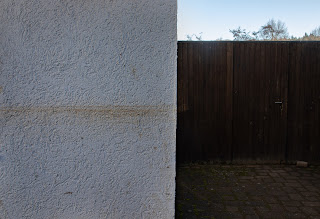wir, nach der katastrophe. (sechs monate danach.) - part I
wir, nach der katastrophe.
sechs monate danach.
Part I
I photographed people´s houses who survived the flood catastrophe in Erftstadt, Rheder and Bad Muenstereifel, which are all cities in Nordrhein-Westfalen, in July of 2021. I want to portray how bad such a disaster can impact and even destroy one´s life and deeply reshape a person.
In this series, I wanted to capture the consequences in a more tangible situation for society, by photographing the belongings of people to whom we feel more proximity, which is also locally conditioned.
As a result of the flood, a total of more than 180 people died and over 700 people were injured, including some children. Four suicides are known in connection with the flooding. Fortunately, there are no more missing persons.
In the case of Blessem, adding up to the climate crisis, engineering errors occurred that would have been avoidable. Due to the large amounts of rain, the catch basins were full, which caused one of them to break. The expansion of the gravel pit directly adjacent to Blessem deprived the Erft of important floodplains. The breach of the dams and the protective wall of the open cast mine caused erosion, which led to the sliding down of the houses. Nevertheless, the river is being straightened back to the way it flowed before, without any lessons being learnt and the river being given the space it needs.
I met someone in Blessem who lives about 300 meters away from the abyss. Fortunately, his house was one of the few which wasn´t affected quite as bad. He told me that houses that are just 3 meters next to his were completely flooded, others that were closer to the abyss even fell into the depth.
Climate change does not spare us, a fact that this event has made very clear. Other parts of Germany and other Central European countries have also been affected. This catastrophe was and is possible due to the change in humidity caused by the rising temperatures brought about by climate change. Furthermore, the change in the global climate causes individual low-pressure or high-pressure areas to remain in one place for longer and are not carried away by the jet streams. This in turn leads to longer-lasting droughts or rainfall, as it happened here.
In the city of Bad Muenstereifel the city centre with all the shops was destroyed and so was the existence of the people, especially the traders. I spoke to an outlet store operator who has only been running his business there for about two years. As the photos suggest, there was nothing left of the shop. Up to this day, the streets are still hardly passable. To raise money, the Flutmarkt was founded to support the affected.
Something similar also happened in the rural area of Rheder in the Eifel. I met a man there whose farm was flooded as a result of the flood and who lost his animals in it.
These are just a few examples of the extent of the climate crisis. One cannot deny that almost the whole world is affected by the consequences.
Climate change is a very serious matter, yet it is mostly ignored by many. The fact that we are now also affected fuels the fear, because until now we knew climate change from drought in Africa, for example. We think we are so far away from such fatal events. Our comfort is catching up with us and forcing us to act.








Kommentare
Kommentar veröffentlichen